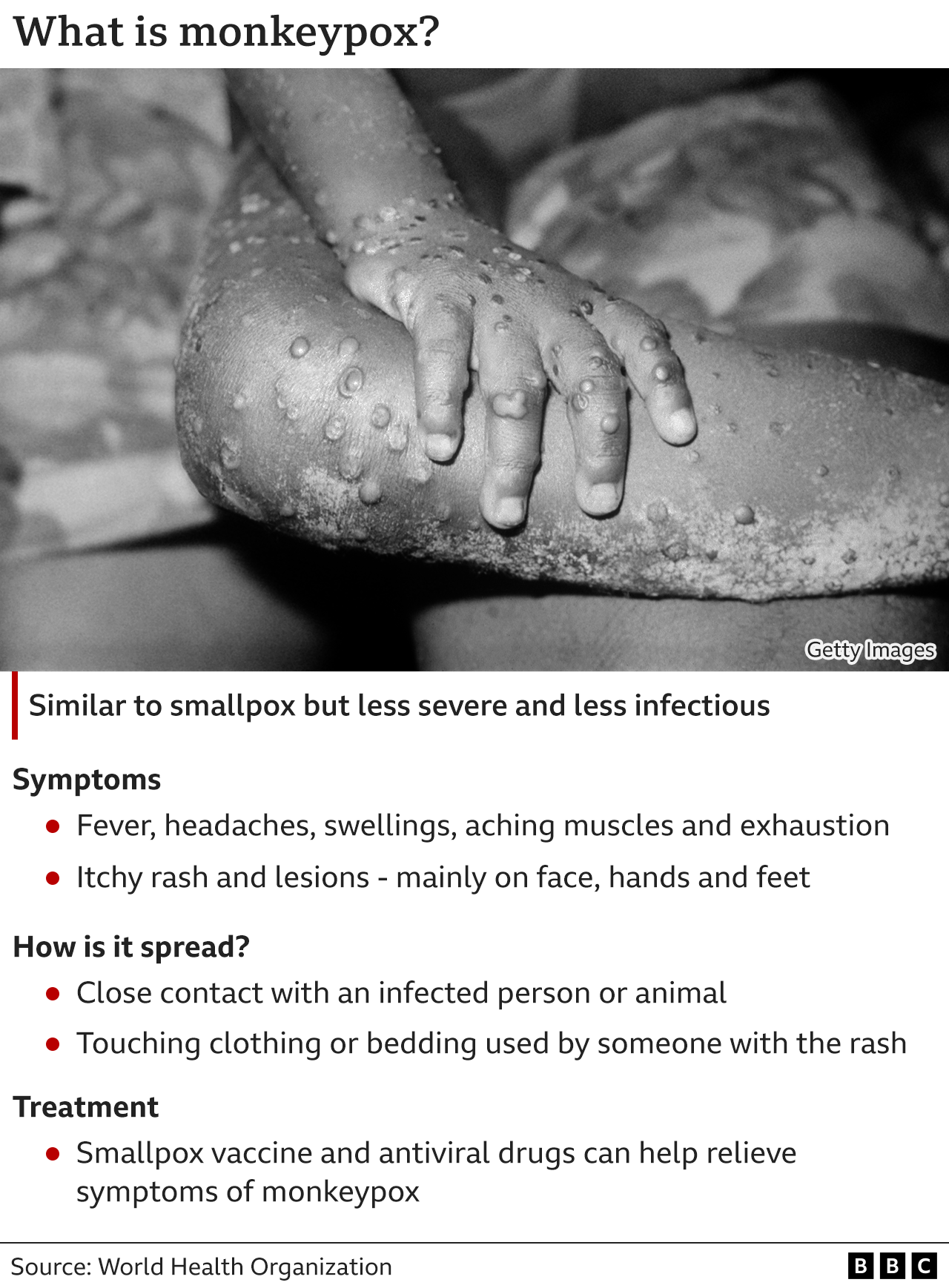
IMAGE SOURCE,SCIENCE PHOTO LIBRARY
By Joseph Lee
BBC News
Israel and Switzerland both said they identified one infected person who had recently travelled abroad. Israel is investigating other suspected cases.
Monkeypox does not tend to spread easily between people and the illness is usually mild.
The virus is most common in remote parts of Central and West Africa.
More than 80 cases have been confirmed in the recent outbreak in Europe, the US, Canada and Australia.
This outbreak has taken scientists by surprise, but the risk to the wider public is said to be low. Most people who catch the virus recover within a few weeks, according to the UK’s National Health Service.
- EXPLAINER: What is monkeypox?
- ANALYSIS: Time to worry or one to ignore?
The World Health Organization has said a number of other suspected cases are being investigated – without naming the countries involved – and warned that more infections are likely to be confirmed.
Asked about the outbreak as he finished a visit to South Korea, US President Joe Biden said that if the virus were to spread more widely it would be “consequential”, adding that “it is something that everybody should be concerned about”.
After the outbreak was first identified in the UK, the virus began to be detected across Europe – with public health agencies in Spain, Portugal, Germany, Belgium, France, the Netherlands, Italy and Sweden all confirming cases.
The UK Health Security Agency has identified 20 cases so far and its chief medical adviser Dr Susan Hopkins told the BBC’s Sunday Morning programme: “We are detecting more cases on a daily basis.”
She said the virus is now spreading in the community – with cases detected which have no contact with anyone who has visited West Africa, where the disease is endemic.
Although there is no specific vaccine for monkeypox, several countries have said they are stocking smallpox vaccines, which are about 85% effective in preventing infection because the two viruses are quite similar.

In a statement on Friday, the WHO said that the recent outbreaks were unusual in that they were occurring in countries where the disease was not endemic.
It is not yet clear why this unexpected outbreak is happening now.
One possibility is that the virus has changed in some way, although currently there is little evidence to suggest this is a new variant.
Another explanation is that the virus has found itself in the right place at the right time to thrive.
The WHO’s regional director for Europe, Hans Kluge, has warned that “transmission could accelerate” during the summer season, as people gather for festivals and parties.
In addition to the European cases, Australia has confirmed that one man who had travelled to the UK contracted the virus.
In North America, health authorities in the US state of Massachusetts said one man who recently travelled to Canada had tested positive for the virus.
Canada’s Public Health Agency said it had identified two cases in Quebec, but said it was not clear if the US traveller had been infected before or during his visit to Montreal.
-
Concern over monkeypox impact on sexual health
5 days ago
-
What is monkeypox and how do you catch it?
2 days ago
